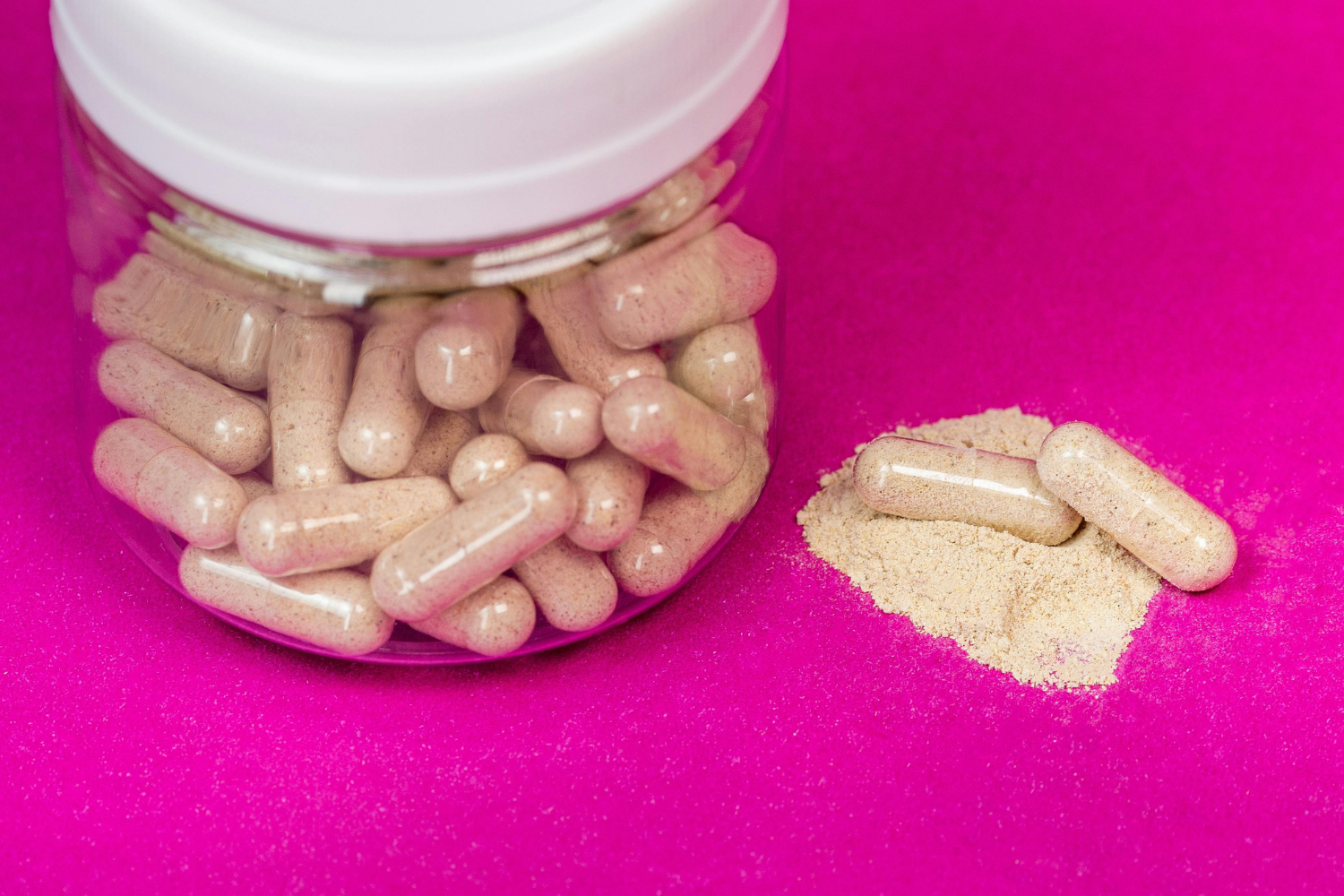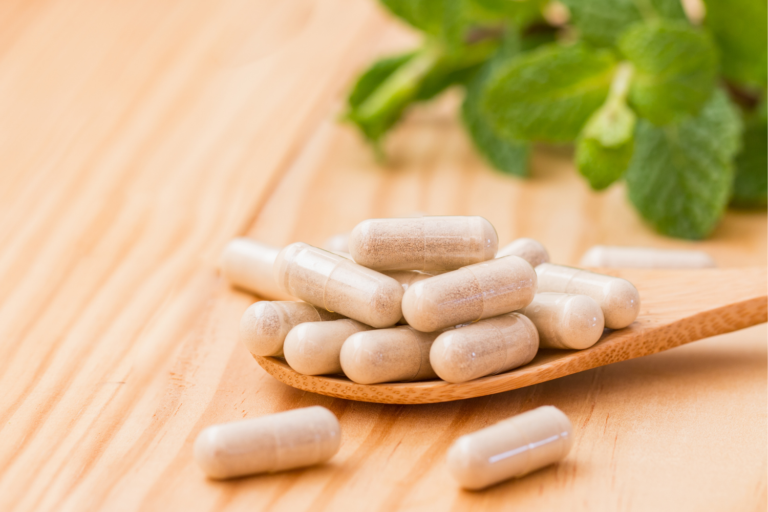The vegan supplement market is expanding as more consumers prioritize plant-based nutrition and overall health. Creating an effective vegan supplement formulation requires selecting high-quality, easily absorbed ingredients that meet essential dietary needs without relying on animal products. A well-balanced formula should include crucial nutrients like vitamin B12, vitamin D, iron, calcium, and zinc to help support overall nutrition and specific bodily functions such as bone strength and red blood cell formation.
Ensuring food safety, good manufacturing practices, and compliance with rigorous standards is essential for delivering a high-quality product. This guide covers ingredient selection, formulation strategies, and compliance requirements to help brands develop a successful vegan supplement.

What Is a Vegan Supplement?
A vegan supplement contains only plant-based or synthetically derived ingredients, with no animal products like gelatin or fish oil. These supplements help fill nutritional gaps in a vegan diet by providing essential vitamins, minerals, proteins, and functional nutrients that may be harder to obtain from plant-based foods alone.
Common Types of Vegan Supplements
- Multivitamins & Minerals – Provides essential nutrients missing from vegan diets.
- Plant-Based Protein Powders – Uses pea, rice, or hemp protein instead of whey.
- Omega-3 Supplements – Sourced from algae instead of fish oil.
- Iron & B12 Supplements – Important for vegans lacking heme iron and animal-based B12.
- Probiotics & Digestive Enzymes – Supports gut health with non-dairy strains.
- Pre-Workout & Recovery Formulas – Vegan amino acids, adaptogens, and electrolytes.
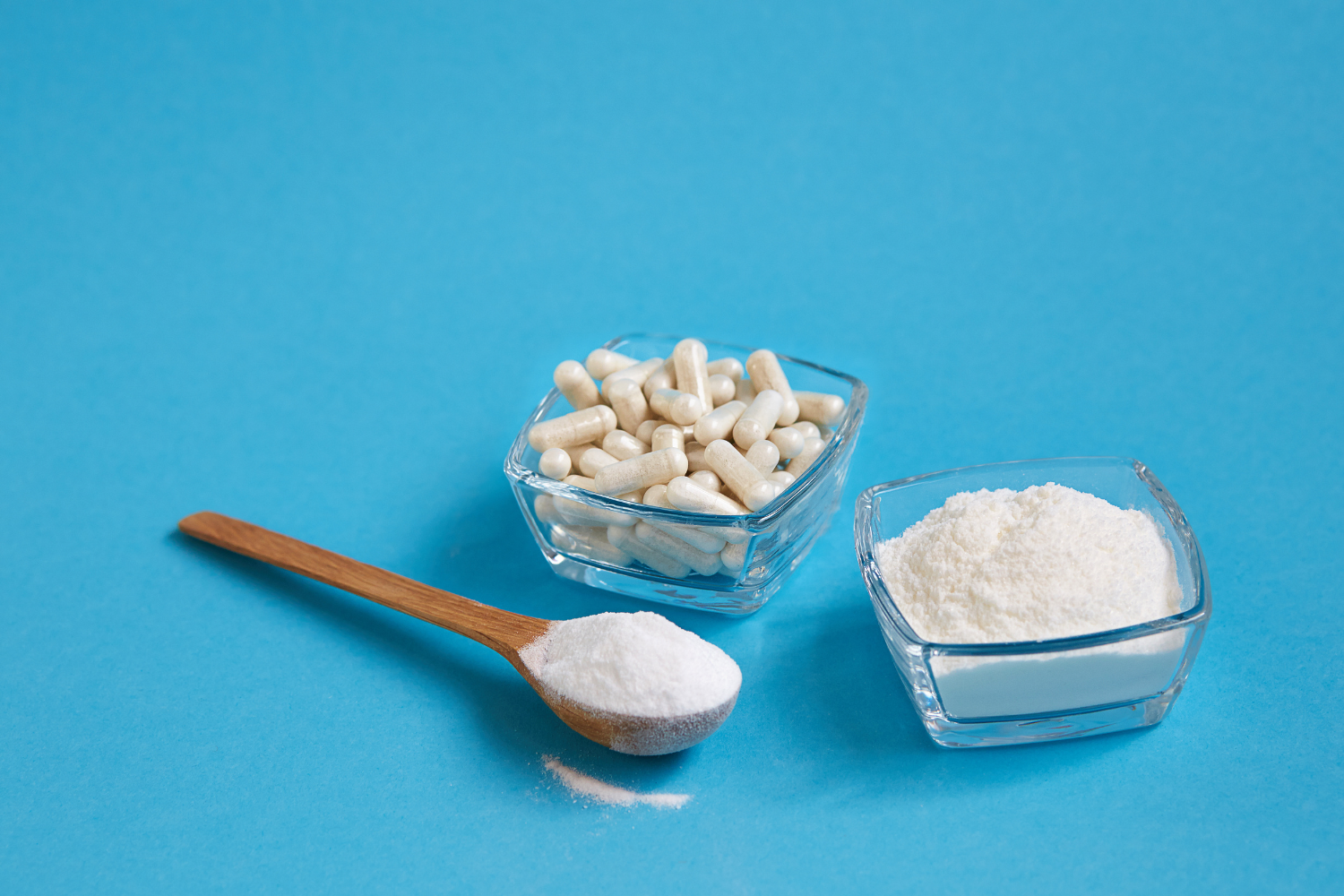
Key Ingredients in a Vegan Supplement Formulation
Selecting the right ingredients ensures a vegan supplement formulation provides essential nutrients while maintaining high absorption and bioavailability.
Vegan Protein Sources
Plant-based proteins are essential for muscle growth, recovery, and overall health. Different protein sources offer unique benefits and amino acid profiles.
- Pea Protein – High in BCAAs, easy to digest.
- Brown Rice Protein – Complements pea protein for a complete amino acid profile.
- Hemp Protein – Rich in omega-3s, fiber, and minerals.
- Pumpkin Seed Protein – Nutrient-dense and hypoallergenic.
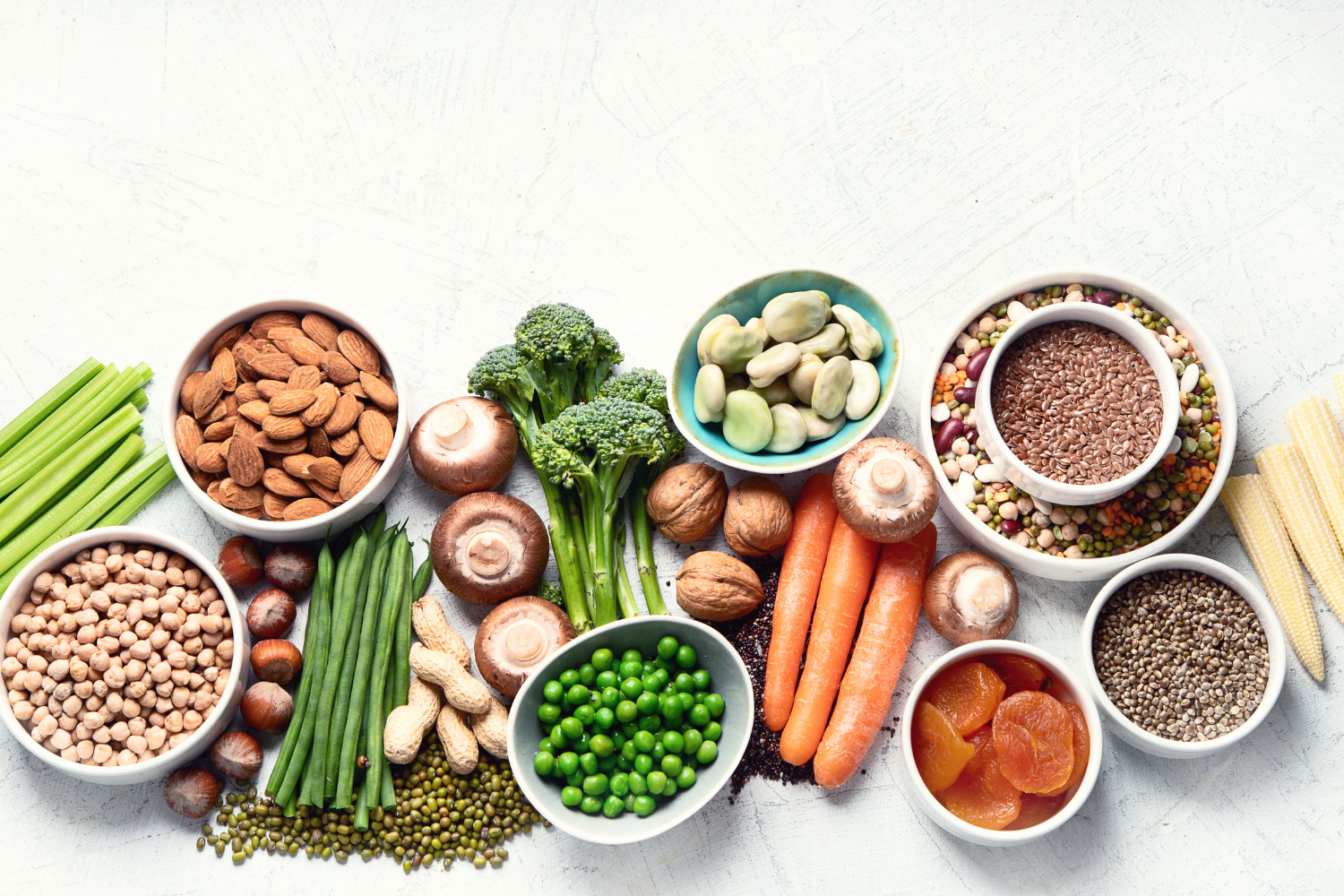
Essential Vitamins & Minerals for Vegans
Vegans must ensure adequate intake of key vitamins and minerals to meet their dietary needs and support long-term well-being.
- Vitamin B12 (Methylcobalamin) – Sourced from fermentation or algae.
- Iron (Ferrous Bisglycinate) – A bioavailable plant-based form of iron.
- Calcium & Vitamin D3 – Algae-based calcium and lichen-derived D3.
- Zinc & Magnesium – Found in seeds, nuts, and plant extracts.
- Iodine – Sourced from seaweed and kelp extracts.
Vegan Omega-3 (DHA & EPA)
DHA and EPA, commonly found in fish oil, are beneficial for brain function and may support cardiovascular health. Since vegans do not consume fish, microalgae serve as the best plant-based source. Algae-derived DHA and EPA provide a plant-based source of omega-3s, which may support similar health benefits as fish oil. A daily intake of 250–500mg of DHA and EPA may support brain and cardiovascular health.
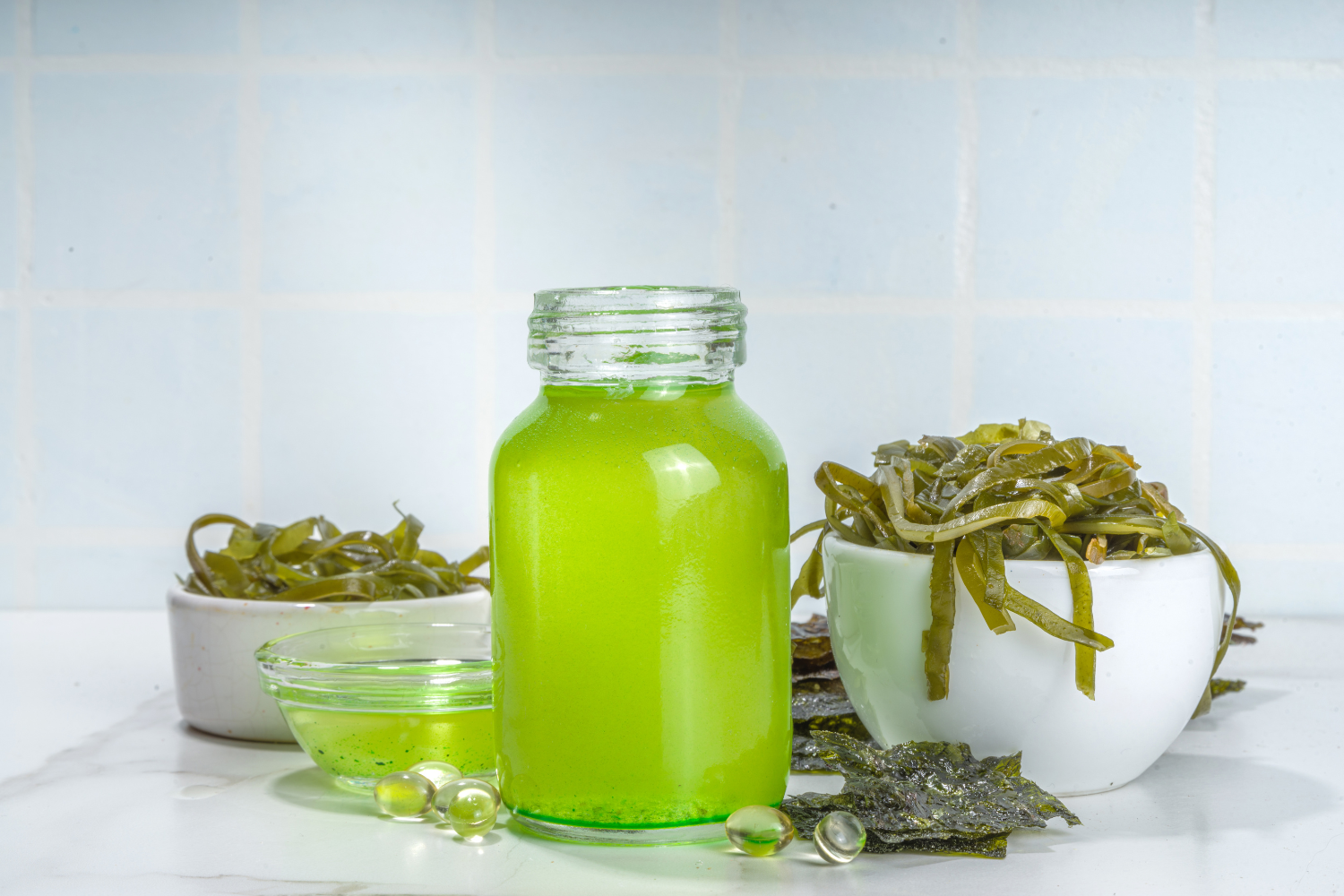
Plant-Based Adaptogens & Functional Ingredients
Adaptogens and functional ingredients help enhance energy, reduce stress, and support overall health.
- Ashwagandha & Rhodiola – Commonly used in supplements for stress support and energy balance.
- Turmeric & Black Pepper – Often used in supplements for their potential antioxidant and wellness benefits.
- Maca Root – Often included in supplements for its potential role in energy support and overall well-being.
Vegan Probiotics & Digestive Support
Supporting digestion and gut health is crucial for nutrient absorption and overall well-being.
- Probiotics – Lactobacillus & Bifidobacterium strains derived from plant-based fermentation.
- Prebiotics – Inulin, acacia fiber, and resistant starch.
- Digestive Enzymes – Bromelain (pineapple), Papain (papaya), and lipase for fat digestion.
How to Formulate an Effective Vegan Supplement
A well-balanced vegan supplement formulation must provide complete nutrition, high bioavailability, and a format that suits consumer preferences. Selecting ingredients and optimizing taste, texture, and absorption improves product effectiveness and market appeal.
Ensuring Complete Nutrition
Plant-based protein sources should be combined to create a full amino acid profile. Pea and brown rice proteins complement each other, while hemp and pumpkin seed proteins provide additional nutrients. This ensures the body receives all essential amino acids for muscle growth and overall health.
Key vitamins and minerals must be included to support a vegan diet. Vitamin B12, iron, and vitamin D3 are crucial for energy, blood health, and bone strength. Algae-based omega-3s offer the same benefits as fish oil, providing DHA and EPA for brain function and inflammation control.

Choosing the Right Delivery Format
The delivery format affects convenience, absorption, and consumer preference. Choosing the right form helps improve compliance and effectiveness.
| Format | Best For | Example Products |
|---|---|---|
| Capsules | Convenience, daily vitamins | Vegan multivitamins, omega-3s |
| Powders | Mixability, protein & greens | Vegan protein, superfood blends |
| Liquids | Quick absorption | Vitamin D3, iron supplements |
| Gummies | Consumer appeal, chewable | Vegan B12, multivitamins |
Optimizing Taste & Texture
Natural sweeteners improve taste without artificial additives. Monk fruit, stevia, and coconut sugar provide sweetness while maintaining a clean-label formulation. Using real flavors like vanilla, cocoa, or fruit extracts enhances palatability.
Mixability is a key factor in powders and liquids. Sunflower lecithin acts as a natural emulsifier, improving the texture of protein powders and drinkable supplements. This helps prevent clumping and ensures a smooth consistency.
Improving Bioavailability
Nutrient absorption is essential for a supplement’s effectiveness. Liposomal delivery enhances the uptake of vitamin C, vitamin D, and curcumin by protecting them from digestion and increasing cellular absorption.
Chelated minerals, such as magnesium glycinate and iron bisglycinate, are designed for improved bioavailability and may enhance nutrient absorption. Fermented vitamins mimic whole-food sources, supporting digestion and increasing nutrient effectiveness.

Common Mistakes to Avoid in Vegan Supplement Formulation
Avoiding common formulation mistakes helps improve product quality, effectiveness, and consumer trust. Selecting the right ingredients and optimizing absorption ensures a superior supplement.
Using Incomplete Protein Sources
Many plant proteins do not contain all essential amino acids, which limits their effectiveness. A complete protein profile is necessary for muscle repair, energy, and overall health. Blending complementary proteins such as pea, rice, and hemp ensures a full amino acid spectrum, making the supplement more beneficial for vegans and vegetarians.
Ignoring Bioavailability
Some plant-based vitamins and minerals are less bioavailable, meaning the body struggles to absorb them. Methylated B vitamins, chelated minerals, and fermented nutrients improve absorption and effectiveness. Using these forms helps ensure consumers receive the full benefits of essential nutrients.
Overlooking Taste & Texture
Many plant-based ingredients have an earthy or gritty texture, which can make supplements less enjoyable. Poor flavor can reduce consumer adherence and affect sales. Flavor-masking agents and natural emulsifiers help improve taste and texture, making the supplement more appealing.
Failing to Meet Vegan Certifications
Consumers expect vegan supplements to be free from animal-derived ingredients, non-GMO, and cruelty-free. Hidden animal-based compounds such as gelatin capsules, lanolin-derived vitamin D3, and shellfish-derived glucosamine can compromise a product’s vegan status. Ensuring proper certifications helps build trust and market credibility.
Scaling & Manufacturing a Vegan Supplement
Producing a high-quality vegan supplement requires working with reliable manufacturers, sourcing premium ingredients, and ensuring proper packaging and labeling. Choosing ethical and sustainable suppliers helps maintain product integrity and appeal to the vegan community.
Finding a Vegan-Friendly Manufacturer
Partnering with a manufacturer that follows good manufacturing practices (GMP) and complies with FDA regulations ensures product safety and quality. Manufacturers should offer plant-based alternatives to traditional capsules, such as vegan cellulose capsules, to keep formulations free from animal products. Working with experienced producers familiar with vegan supplement formulation helps prevent cross-contamination and ensures compliance with rigorous standards.
Sourcing High-Quality Ingredients
Using organic, non-GMO, and third-party tested ingredients guarantees purity and safety. Ethical sourcing is crucial for maintaining trust within the vegan supplement market, so verifying supplier practices ensures ingredients meet strict food safety and sustainability guidelines. Selecting vegan-friendly vitamin D, B12, iron, and omega-3s from reputable suppliers enhances the potential health benefits of the final product.
Packaging & Labeling Considerations
Sustainable, eco-friendly packaging appeals to vegan consumers who prioritize environmental responsibility. To establish credibility, labels should clearly display vegan certifications such as The Vegan Society, USDA Organic, and Non-GMO Project Verified. Transparency about nutritional needs, dietary needs, and ingredients helps build consumer trust and enhances product visibility in the dietary supplements market.

Marketing & Selling Your Vegan Supplement
Effective branding, strategic distribution, and strong digital marketing help maximize sales and reach the right audience. Positioning the product correctly ensures it stands out in a competitive market.
Branding Your Product for Success
Highlighting plant-based, cruelty-free, and clean-label claims clearly attracts vegans, vegetarians, and health-conscious consumers. Incorporating unique functional ingredients like adaptogens, fermented probiotics, or spirulina differentiates the product from competitors. Focusing on overall health, bone health, and inflammation support helps position the supplement as a high-value option.
Choosing Sales & Distribution Channels
Selecting the proper sales channels ensures broader market reach.
- Direct-to-Consumer (DTC): Sell through your website, Amazon, or Shopify to control branding and profit margins.
- Retail & Wholesale: Partner with health food stores, gyms, and vegan markets to expand offline availability.
- Subscription Models: Offer recurring purchases to build long-term customer loyalty.
Digital Marketing Strategies
Strong digital marketing increases brand awareness and drives sales.
- SEO-focused content: Publish blog articles on vegan nutrition to attract organic traffic.
- Social media advertising: Run ads targeting plant-based consumers on platforms like Instagram and Facebook.
- Influencer collaborations: Work with vegan influencers to build credibility and reach niche audiences.

Creating a High-Quality Vegan Supplement for Market Success
A successful vegan supplement formulation includes plant-based ingredients, essential nutrients, and bioavailable compounds to support overall health and well-being. Combining complete plant proteins, vitamins, and functional ingredients ensures a nutrient-dense product that meets the dietary needs of vegans.
Good manufacturing practices, food safety, and proper certifications help maintain quality and consumer trust. Strong branding, strategic distribution, and digital marketing will position the supplement competitively in the growing vegan supplement market.
Frequently Asked Questions
What are the most important nutrients in a vegan supplement?
Vitamin B12, iron, omega-3 (DHA/EPA), and plant-based proteins are essential.
How do I ensure my supplement is 100% vegan?
Use plant-based ingredients, avoid hidden animal derivatives, and obtain vegan certifications.
What certifications should I get for my vegan supplement?
Vegan Society, USDA Organic, Non-GMO Project Verified, and NSF Certified.
How can I improve the taste and texture of my vegan supplement?
Use natural sweeteners, flavor enhancers like vanilla or cocoa, and emulsifiers for better mixability.
What are the best sales channels for vegan supplements?
Sell through direct-to-consumer platforms, retail stores, wholesale partnerships, and subscription models.
References
- National Institutes of Health. (n.d.). Dietary Supplement Fact Sheets. https://ods.od.nih.gov/factsheets/list-all/
- National Institutes of Health. (2024). Omega-3 Fatty Acids – Health Professional Fact Sheet. https://ods.od.nih.gov/factsheets/Omega3FattyAcids-HealthProfessional/
- National Institutes of Health. (2024). Vitamin B12 – Health Professional Fact Sheet. https://ods.od.nih.gov/factsheets/VitaminB12-HealthProfessional/
- U.S. Food and Drug Administration. (2024). Current Good Manufacturing Practice (CGMP) Regulations. https://www.fda.gov/drugs/pharmaceutical-quality-resources/current-good-manufacturing-practice-cgmp-regulations
- U.S. Food and Drug Administration. (2024). Current Good Manufacturing Practices (CGMPs) for Food and Dietary Supplements. https://www.fda.gov/food/guidance-regulation-food-and-dietary-supplements/current-good-manufacturing-practices-cgmps-food-and-dietary-supplements
